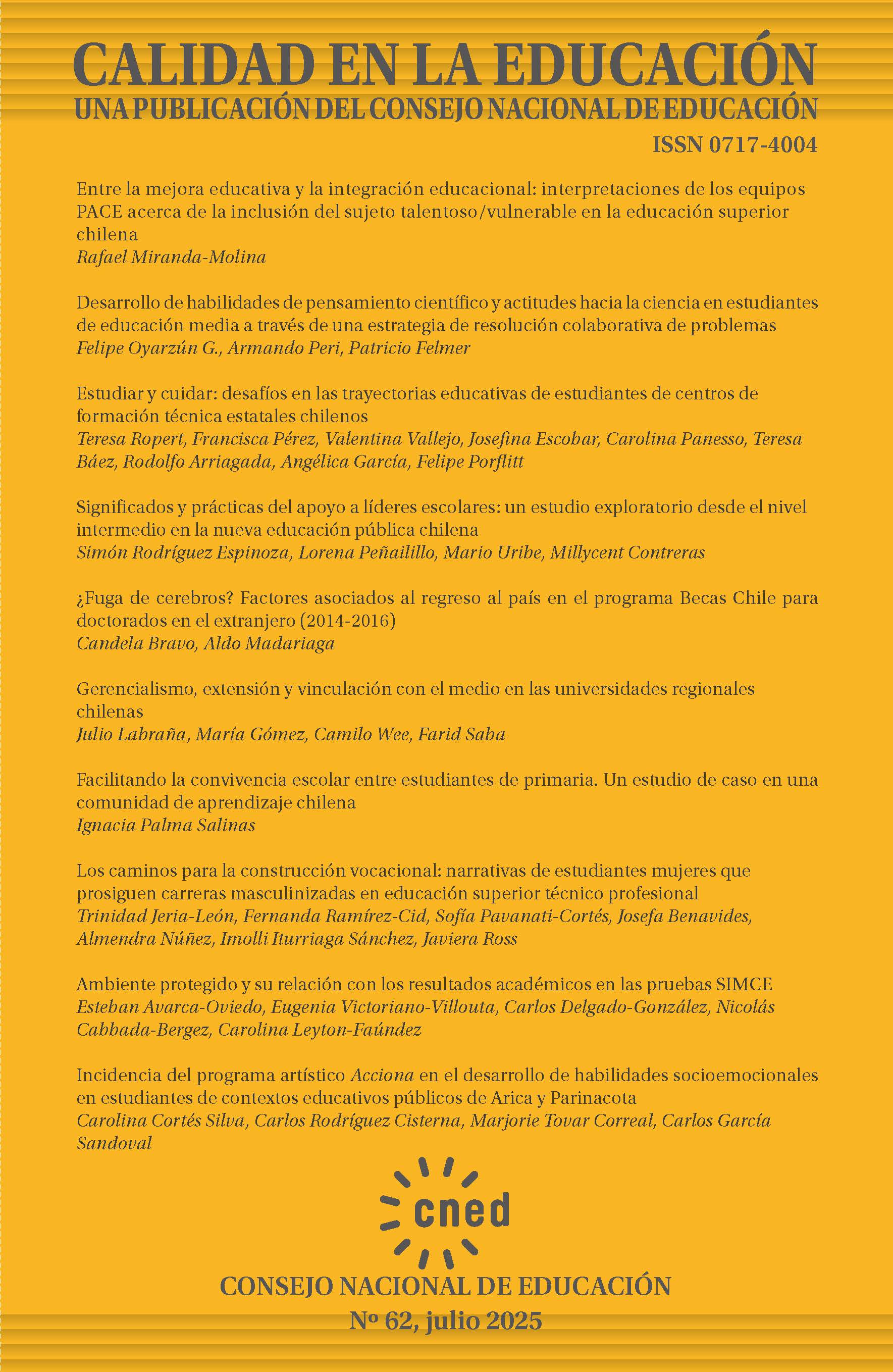Managerialism, Engagement, and Outreach in Chile's Regional Universities
DOI:
https://doi.org/10.31619/caledu.n62.1523Keywords:
Engagement, Higher Education, Managerialism, OutreachAbstract
The article examines how Chile's regional state universities have resolved the tension between their social mission of outreach and engagement and the pressures of managerialism, using social systems theory and the sociology of translation. The findings indicate that these institutions have adopted various forms of translation, such as copying, adding, subtracting, and altering, to incorporate the demands of managerialism without entirely abandoning their institutional identity. Although the universities reinterpret and adapt external demands in a contextualized manner, the professionalization of their teams has facilitated alignment with managerialism but without producing homogenized responses. The reformulation of engagement as management of outreach, guided by managerial principles, implies that activities related to dissemination and social justice are now expected to be demonstrated and verified. This poses the challenge of balancing their social mission with the growing concern about institutional image.
Downloads
Published
Issue
Section
License

This work is licensed under a Creative Commons Attribution 4.0 International License.
Authors retain their Copyright and only transfer a part of these to the journal, accepting the following conditions:
Authors keep their rights as authors and guarantee the right to the journal for the first publication of their work, which is simultaneously subject to the Creative Commons Attribution license allowing third parties to share the study accrediting the author and first publication in this journal.
Authors may adopt other non-exclusive license agreements for distribution of the version of the published work (e.g. inclusion in an institutional thematic file or publication in a monographic volume) accrediting initial publication in this journal.
Authors are allowed and recommended to share their work over the Internet (e.g. in institutional telematic files or their website) before and during the submission process, which may lead to interesting exchanges and increased citation of the published work. (See The effect of open access).

